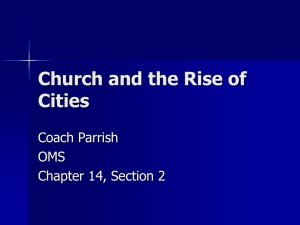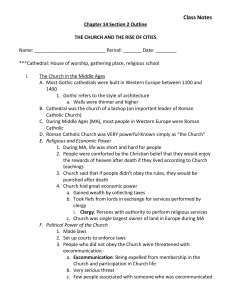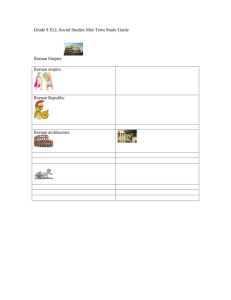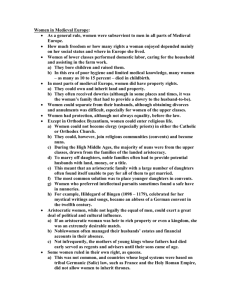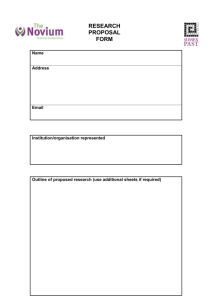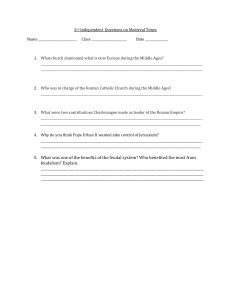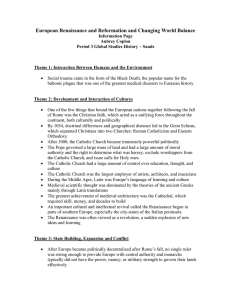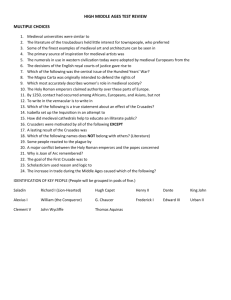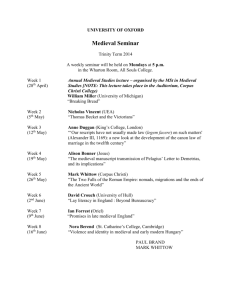p.126 to 132
advertisement
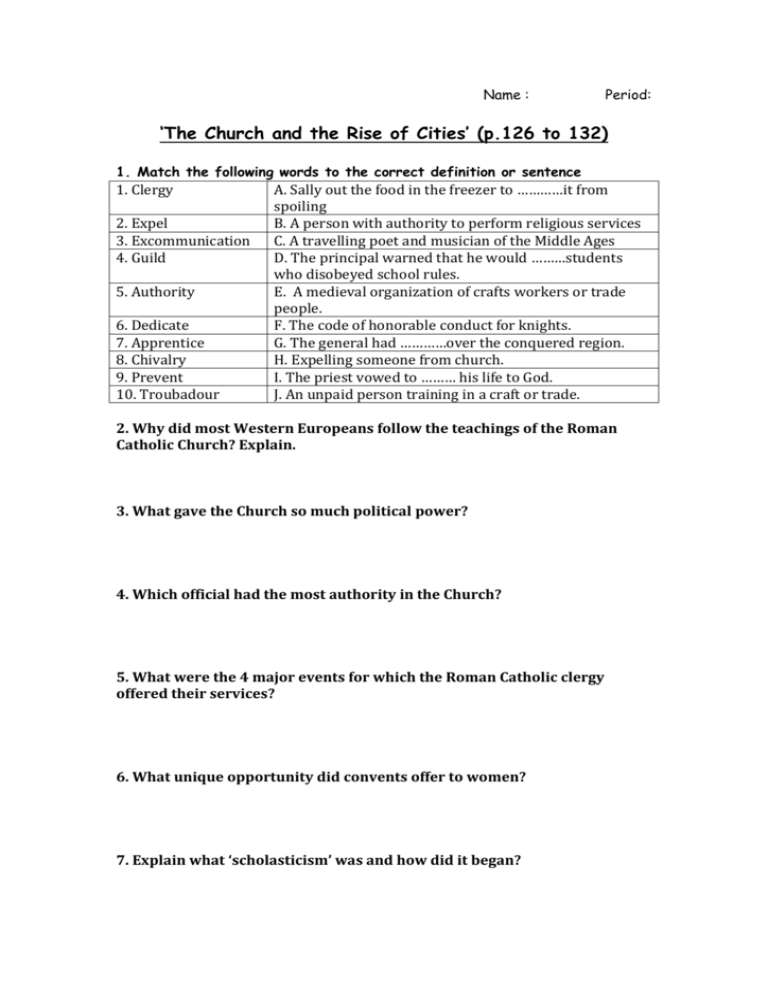
Name : Period: ‘The Church and the Rise of Cities’ (p.126 to 132) 1. Match the following words to the correct definition or sentence 1. Clergy 2. Expel 3. Excommunication 4. Guild 5. Authority 6. Dedicate 7. Apprentice 8. Chivalry 9. Prevent 10. Troubadour A. Sally out the food in the freezer to …………it from spoiling B. A person with authority to perform religious services C. A travelling poet and musician of the Middle Ages D. The principal warned that he would ………students who disobeyed school rules. E. A medieval organization of crafts workers or trade people. F. The code of honorable conduct for knights. G. The general had …………over the conquered region. H. Expelling someone from church. I. The priest vowed to ……… his life to God. J. An unpaid person training in a craft or trade. 2. Why did most Western Europeans follow the teachings of the Roman Catholic Church? Explain. 3. What gave the Church so much political power? 4. Which official had the most authority in the Church? 5. What were the 4 major events for which the Roman Catholic clergy offered their services? 6. What unique opportunity did convents offer to women? 7. Explain what ‘scholasticism’ was and how did it began? 8. What were monasteries and convents? 9. Why did people begin to travel more in Western Europe? 9a. Explain how this led to the revival of trade? 9b. What were to 2 major reasons for the growth of towns? 9c.Describe the middle class of the Middle Ages. 10. What was the role of guilds in medieval towns and cities? 10a. Why would someone join a guild? 11. What was the Black Death? 12. What were some advantages of living in a medieval city? 13. What factors lead to the increase in trade in Western Europe? 14. How might the growth of trade have affected the life of an ordinary person?
